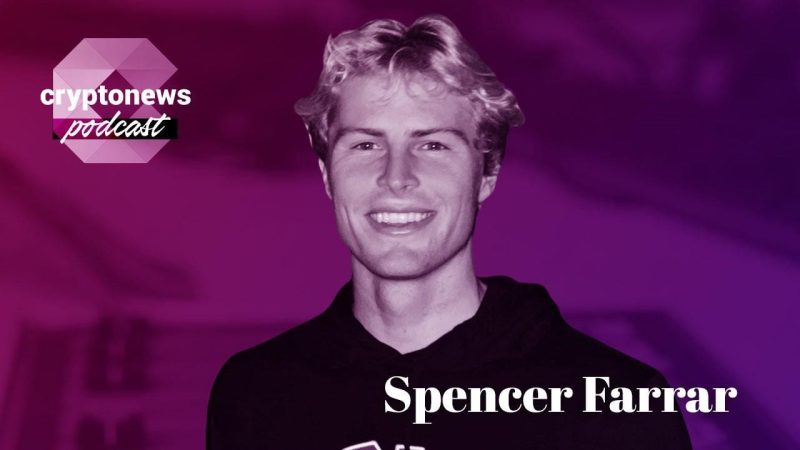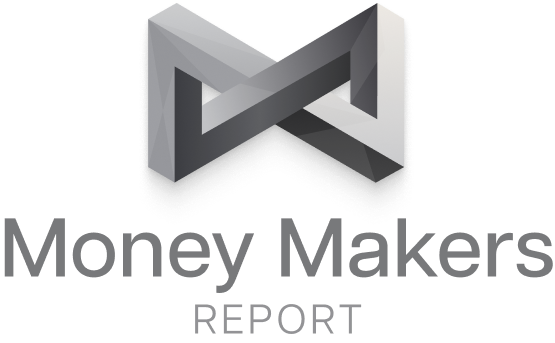
Spencer Farrar, Partner at Theory Ventures, on Web3 Venture Capital, Funding, and Strategy | Ep. 334
In a recent exclusive interview with Cryptonews, Spencer Farrar, a Partner at Theory Ventures, talked about the recent difficulty of raising capital and how the Theory team managed to do it.
Chatting with Cryptonews Podcast’s host Matt Zahab, Farrar discussed the necessity of projects having an edge that makes them unique and attractive to investors.
Lastly, he stressed the importance of thorough research and understanding the market, as well as the type of companies Theory is investing in.
Alignment Between Investor and Project is Key
Farrar noted that the total dollar amount deployed into the venture space was the lowest it’s been in several years.
Therefore, 2023 was a hard year for emerging managers to raise capital.
Despite that, Theory Ventures managed to raise millions. The team was fortunate, persistent, and “greedy when others are fearful,” as Warren Buffett once said.
Fundamentally, we are guided by thesis-driven principles, with an emphasis on researching ideas, cultivating well-founded viewpoints, and applying those insights to back founders from the earliest inceptions of their ventures.
— Spencer Farrar (@SpencerFarrar) April 25, 2023
For an investor, it’s very important to have an “edge” and fully understand what that edge is.
On the other hand, for a founder, a big part of one’s strategy when taking money should be making sure that there’s alignment with investors.
“And I think when taking money,” Farrar said, “it’s important to actually do some thought around cap table design and understand: I’m going to get support from my main lead investor here, and these angels can introduce me to these ecosystems or help with business development.”
Notably, he added that the most influential people are actually on Twitter.
‘Technical Discontinuity’ Makes You Unique
When it comes to Theory Ventures, Farrar stressed two key elements: deep research and ‘technical discontinuity.’
The latter essentially means an edge. In other words, a project Theory would invest in needs to have something in the market that it understands better than others.
Notably, Theory’s own edge is very thorough research.
What was the most profitable software company in Q1 2024?
Ethereum.
Ethereum generated $370m in profit on $825m in revenue for about a 45% net income margin.
The chart above shows both the historical performance & also explains how web3 blockchains like Ethereum generate… pic.twitter.com/bWe8FmhOHy
— Tomasz Tunguz (@ttunguz) April 18, 2024
Before even starting, the founding team – including venture capitalist Tomasz Tunguz – reviewed all the historical data on venture firms, their performance, and winning strategies.
They established Theory as a thesis-driven firm. Their deep research provides them with an understanding of the market they’re investing in and enables them to have “a lot of conviction” in the companies they’re backing.
Ultimately, those who have a great understanding of the market can identify a winner, Farrar remarked.
Therefore, Theory itself is taking a highly concentrated approach toward investing in next-generation software companies.
They aim to back highly technical founders with “some sort of technical discontinuity.”
Doing Due Diligence Leads to Success
Theory invests in Web2 and Web3, primarily looking into data, AI, and crypto companies.
They do extensive research in these markets and talk to many customers. For example, on the B2B side, they talk to big enterprises to understand their problems and needs.
The fastest growing category of US venture investment in 2024 is AI. Venture capitalists have invested $18.3 billion through the first four months of the year.
At this pace, we should expect AI startups to raise about $55b in 2024.
AI startups now command more than 20% share of… pic.twitter.com/WLomJyg8tU
— Tomasz Tunguz (@ttunguz) May 9, 2024
There are two stages before Theory decides on making an investment, Farrar said.
First, Farrar will talk to developers building on top of an ecosystem, the ecosystem partners, and “as many people as I can.”
Then, the team will also contact individuals in crypto and Web2 to try to understand the market dynamics. They’ll seek to understand the market, customer appetite, developer interest, any potential holes in the market, etc.
Currently, there are two crypto investments the team is “extremely excited about.” Though Farrar couldn’t provide details, he said he could “tease it out.”
First, Theory works with a fast-growing data company, which in turn works with some major finance companies.
“You’re seeing the entrance of a lot of big financial institutions that need to touch crypto and so they need data,” Farrar said.
The other company Theory is working with has “some novel economics that we’re really excited about.”
Meanwhile, in the Web2 world, Farrar worked with a vector compute company called Superlinked. They turn all the company data, metadata, and additional features into a vector for a highly performant search.
This is very prominent within AI today, and it’s a pure infrastructure investment. It’s highly valuable for the future of search and retrieval, Farrar concluded.
We partnered with @superlinked to make this vision a reality. Founder Daniel Svonava is a former engineer at YouTube who worked on real-time machine learning systems for a decade & we’re thrilled to be working with the team.
— Spencer Farrar (@SpencerFarrar) March 26, 2024
____
That’s not all.
In this interview, Farrar also discussed:
time at Berkeley as a cognitive science major and an athlete;
taking business courses;
“stumbling” into the tech world and investing in crypto;
working at Web3 startup Velocity
the state of Web3 funding;
what Web3 startups need to do to have a comeback;
venture strategy and liquid strategy in crypto;
AI-based Web3/blockchain companies;
the relevance of branding in crypto.
You can watch the full podcast episode here.
__________
About Spencer Farrar
Spencer Farrar is a Partner at Theory Ventures.
He was a two-sport athlete at Berkeley (swimming and water polo).
Farrar then worked at Velocity, a Web3 startup that processed more than $150 million of volume per day.
After this, he joined Bienville, a $4-billion asset investing in early-stage blockchain companies.
The post Spencer Farrar, Partner at Theory Ventures, on Web3 Venture Capital, Funding, and Strategy | Ep. 334 appeared first on Cryptonews.
